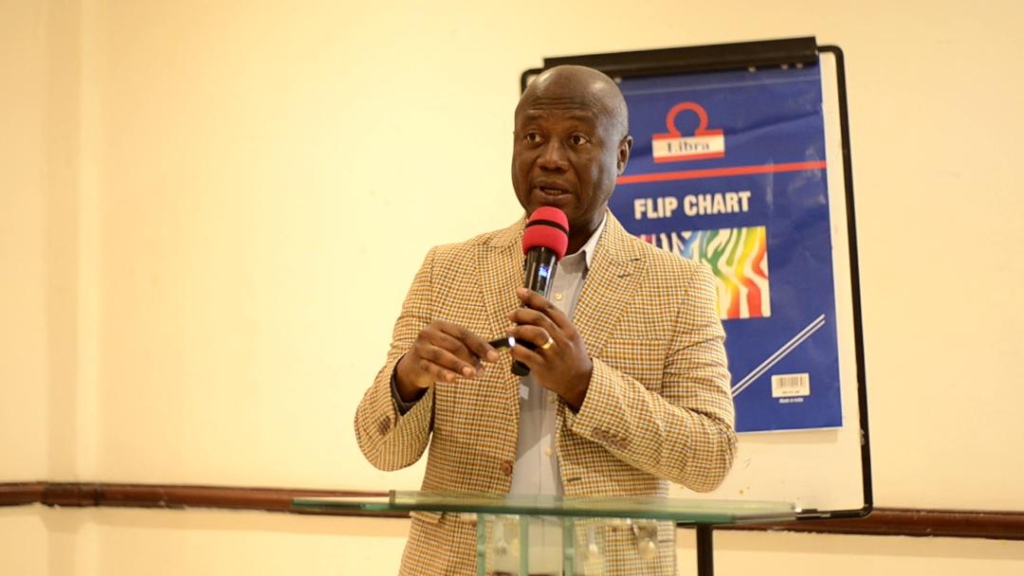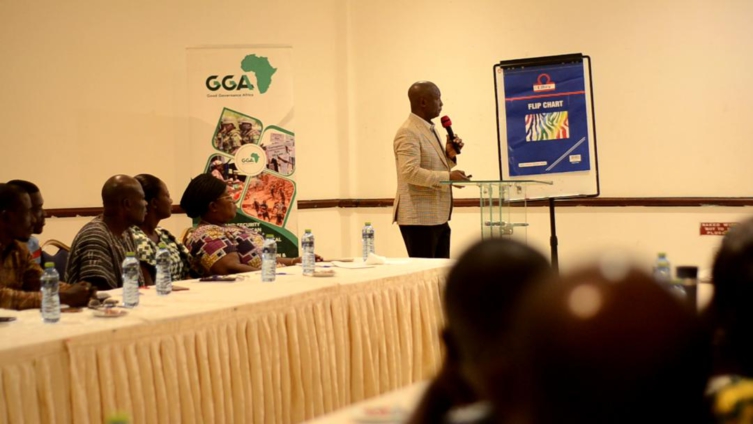
Audio By Carbonatix
Good Governance Africa, a non-profit pan-African research and advocacy centre, is facilitating the actualization of the full benefits of the African Continental Free Trade Area (AfCFTA) through a public stakeholder sensitization program.
The organization says entrepreneurs in Ghana could be missing out on the opportunities the continental policy presents as majority of them are oblivious of its importance.
In a bid to acquaint businesses with the trade agreement, the organization embarked on a two-day workshop to reiterate the detailed action plan and benefits of having a single market for Africans.
The African Continental Free Trade Area (AfCFTA), established in 2018, seeks to create a single continental market to boost intra-African trade with free movement of businesses and investments.
The trade agreement, which forms part of the African Union’s Agenda 2063, aims at promoting, enhancing and advancing digital trading and electronic commerce.
But a recent research revealed that about 34% of enterprises in Ghana with majority being women-led are unaware of the policy after its full implementation in January 2021.

Research Coordinator at the West African regional office of Good Governance Africa, Edward Teye Sarpong, emphasized the need to position micro, small and medium scale enterprises to take advantage of the AfCFTA.
“We are following the implementation processes of the National Secretariat. We are looking for pieces of information that are critical for businesses to act on. We package those information sets then create platforms for the businesses to get to know them,” he said.
With Africa’s population pegged at 1.2 billion, the single market is expected to generate an estimated USD 3.4 trillion.

Lecturer at the Department of Planning, KNUST, Professor Dan Inkoom, is advocating a change of mindset and the implementation of policies by the government to create internal demand for locally-made goods.
He believes this approach would avert the taste for foreign goods and help promote AfCFTA.
“The mindset change is very importance. If you’re developing any product, the first thing you have to think about is how to sell it. So you do the business with your consumer in mind. But sometimes the Ghanaian consumer prefers foreign goods to the local ones. One of the biggest steps government can do is to create the biggest demand. Government can introduce policies to ensure we do not import some products,” he said.
The two-day workshop brought together representatives from the business, trade, and commerce community.
Some participants who spoke to JoyNews assured of disseminating the benefits of the trade agreement to businesses in the region.
“AfCFTA is particularly for the business community. Our ability to communicate this policy to them will help make this agreement a success,” a banker said.
Latest Stories
-
Ghana is rising again – Mahama declares
5 hours -
Firefighters subdue blaze at Accra’s Tudu, officials warn of busy fire season ahead
5 hours -
New Year’s Luv FM Family Party in the park ends in grand style at Rattray park
5 hours -
Mahama targets digital schools, universal healthcare, and food self-sufficiency in 2026
5 hours -
Ghana’s global image boosted by our world-acclaimed reset agenda – Mahama
6 hours -
Full text: Mahama’s New Year message to the nation
6 hours -
The foundation is laid; now we accelerate and expand in 2026 – Mahama
6 hours -
There is no NPP, CPP nor NDC Ghana, only one Ghana – Mahama
6 hours -
Eduwatch praises education financing gains but warns delays, teacher gaps could derail reforms
6 hours -
Kusaal Wikimedians take local language online in 14-day digital campaign
7 hours -
Stop interfering in each other’s roles – Bole-Bamboi MP appeals to traditional rulers for peace
7 hours -
Playback: President Mahama addresses the nation in New Year message
8 hours -
Industrial and Commercial Workers’ Union call for strong work ethics, economic participation in 2026 new year message
10 hours -
Crossover Joy: Churches in Ghana welcome 2026 with fire and faith
10 hours -
Traffic chaos on Accra–Kumasi Highway leaves hundreds stranded as diversions gridlock
10 hours

